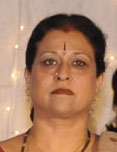Pakistani media’s response to the Justice Saqib Nisar audio leak| Major takeaways
The sense ranges from feebleness of the media to frustration about misaligned coverages of issues.

The sense ranges from feebleness of the media to frustration about misaligned coverages of issues.

Pakistan has agreed to various conditions of IMF for continuation of a loan of USD 4.268 billion only while avoiding further Chinese loans

Joined NIAS on 1st February 2007. Most significant research contribution: Analysis of Pakistan’s ballistic missile production capacity. Prof Rajaram Nagappa has specialised in aerospace propulsion and has worked extensively to design and develop solid propellant rockets. His interests are in missile technology and space weaponisation. He has served in the Vikram Sarabhai Space Centre, ISRO as its Associate Director, and later was Pandalai Memorial Chair Professor at Anna University, Chennai. He has also taught at Technion-Israel Institute of Technology, Israel. He is a recipient of the Astronautical Society of India Award, Distinguished Alumnus Award of the Madras Institute of Technology, DRDO's Agni Award for Excellence in Self Reliance, Certificate of Appreciation of the International Astronautical Federation and the Honorary Fellowship of the High Energy Materials Society of India. His recent work includes an assessment of the Pakistani cruise missiles and an assessment of the Iranian satellite launch vehicle Safir. He has also traced the development of fighter aircraft in China as a part of a study on China's Science & Technology capability
I have been involved in the assessment of Pakistan and China's Science and Technology capabilities through specific micro level case studies such as single crystal superalloys turbine blades for aircrafts, and in the area of missiles and nuclear technologies. A detailed analysis of the chinese strategy to attain global domination in the rare earth eco system was also studied. The need for India to play a greater role in building a complete rare earth value chain has been emphasised through a separate study on the Indian situation
BTech (IIT, Madras), PGDM (IIM, Calcutta). Joined NIAS on 2nd July 2004. Most significant research contribution: Analysis of technical and organizational aspects of China’s missile capability; assessment of Pakistan missiles; and assessing the Indo-US Civil nuclear deal. Prof S Chandrashekar is currently a Professor in the Corporate Strategy and Policy Area at the Indian Institute of Management Bangalore (IIMB). Prior to his joining IIMB he spent more than 20 years working at the Indian Space Research Organization (ISRO). His work at ISRO covered all parts of the programme - satellite, rockets as well as the applications of space technology especially remote sensing. He was also involved with activities related to international co-operation and has represented and led Indian delegations to the United Nations Committee on the Peaceful Uses of Outer Space.
PM Soundar Rajan is a pioneer and a leading expert in combat aircraft avionics by his peers from the Services and Aircraft Industry. Through the experience gained in the early eighties, with the development and evaluation of India’s first Digital Avionics Upgrade, he contributed towards the development and Integration of LCA Avionics (1986 to 1995). With deep insight into HW and SW, he contributed towards development to deployment of COTS-based Mission Computers, Display Processors and Radar Computers for India’s Multirole combat aircraft (1996 to 2002). Pioneering HW and SW reuse, he developed the Core Avionics Computer. He upgraded India’s leading Attack aircraft without any help from the OEM (2002 to 2008). During his tenure as Director, DARE he was instrumental in measures leading to self-reliance in the strategic area of avionics and airborne electronic warfare. During the nineties, he played a key role in setting the syllabus for the ME Avionics at Anna University
